In today’s health-conscious world, fitness trackers have evolved from simple step counters to sophisticated health monitoring devices. Whether you’re a dedicated athlete or just beginning your wellness journey, the right fitness tracker can provide valuable insights into your health metrics, motivate you to reach your goals, and help you make informed decisions about your lifestyle.
As part of our commitment at LifeSpark Lab to bring you evidence-based wellness information, we’ve thoroughly researched and tested the top fitness trackers on the market. This comprehensive review will help you find the perfect device to support your health and fitness goals in 2025.
What to Look for in a Modern Fitness Tracker
Before diving into specific recommendations, let’s explore the key features that distinguish exceptional fitness trackers in today’s market:
Essential Features
- Heart Rate Monitoring: Continuous heart rate tracking provides insights into your cardiovascular health, workout intensity, and recovery.
- Sleep Analysis: Detailed sleep stage tracking (REM, deep, light) helps optimize your rest and recovery.
- Activity Tracking: Beyond basic step counting, look for devices that recognize multiple exercise types automatically.
- Battery Life: Consider how frequently you’re willing to charge your device—options range from 1-2 days to 2+ weeks.
- Water Resistance: At minimum, your tracker should withstand sweat and rain; swimmers should look for 50m+ water resistance.
Advanced Features Worth Considering
- ECG Monitoring: Electrocardiogram capability can detect irregular heart rhythms and potential health concerns.
- Blood Oxygen (SpO2) Monitoring: Measures oxygen saturation levels, particularly useful for sleep apnea detection and high-altitude training.
- Stress Tracking: Uses heart rate variability (HRV) to gauge stress levels and suggest mindfulness interventions.
- GPS: Built-in GPS eliminates the need to carry your phone during outdoor workouts.
- Smart Notifications: Receive calls, texts, and app alerts directly on your wrist.
Our Top 5 Fitness Tracker Picks for 2025
1. Fitbit Charge 6 – Best Overall Fitness Tracker
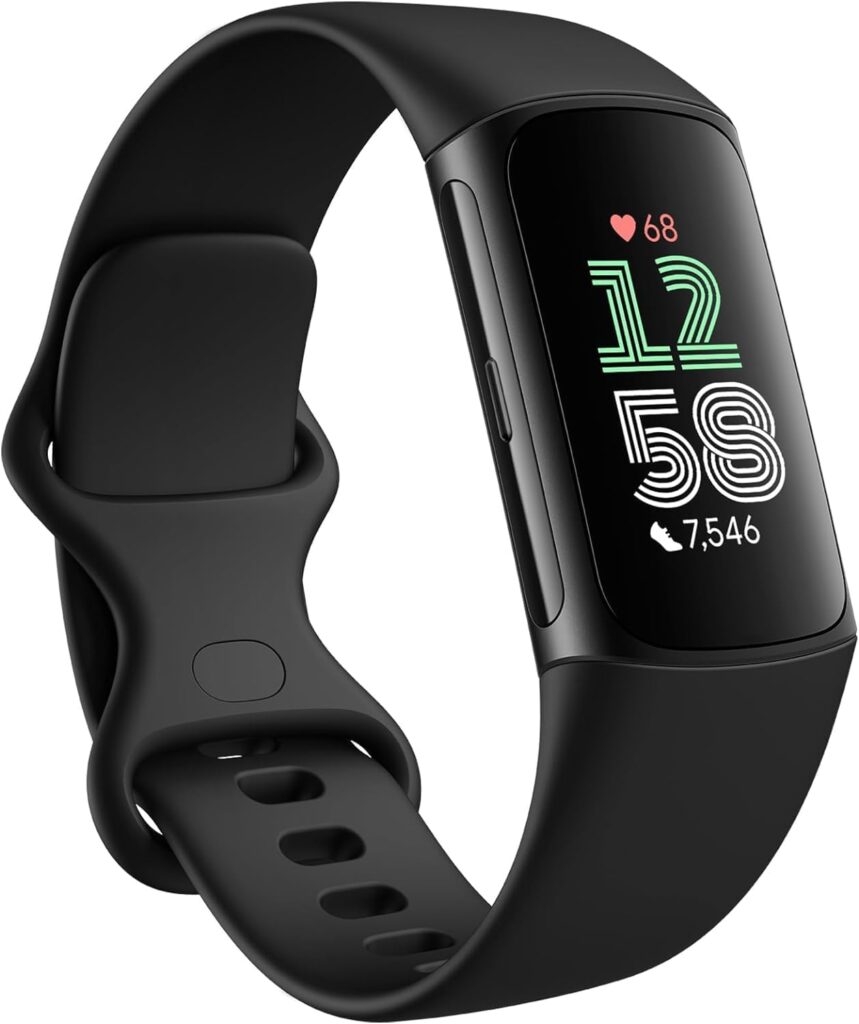
Price: $149.95 (approximately €138)
Key Features:
- 7-day battery life
- Built-in GPS
- ECG app for heart rhythm assessment
- Advanced sleep tracking with Sleep Score
- Active Zone Minutes for optimized workout intensity
- Google integration (Maps, Wallet, etc.)
- 50m water resistance
Why We Love It: The Charge 6 excels at providing actionable insights rather than just data. Its Sleep Score feature combines duration, quality, and restoration metrics into an easy-to-understand number, while the Active Zone Minutes feature ensures you’re training at the right intensity for your fitness level. The addition of Google services makes this a particularly versatile option.
Best For: Health enthusiasts who want comprehensive tracking without the bulk or price tag of a smartwatch.
2. Apple Watch Series 10 – Best Premium Option
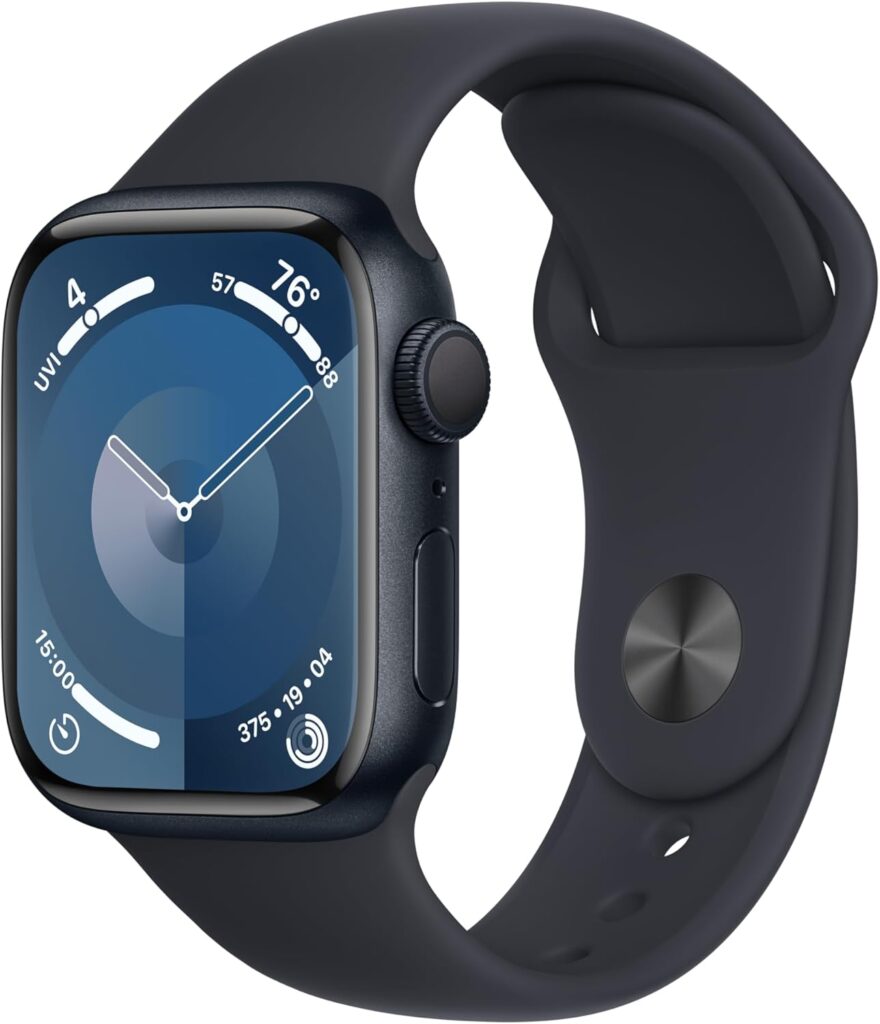
Price: $399 (approximately €368) for 41mm / $429 (approximately €396) for 45mm
Key Features:
- Up to 36 hours in Low Power Mode
- ECG and irregular heart rhythm notifications
- Blood oxygen monitoring
- Temperature sensing for cycle tracking and illness detection
- Advanced sleep stages tracking
- Crash and fall detection with emergency services
- Extensive workout types with Apple Fitness+
Why We Love It: No other wearable matches the Apple Watch’s combination of health features, app ecosystem, and seamless integration with iPhone. The Series 10’s improved battery life addresses a long-standing criticism, while the comprehensive health monitoring suite makes it a powerful tool for holistic wellness management.
Best For: iPhone users who want the most advanced health tracking available and don’t mind daily charging.
3. Garmin Vivosmart 5 – Best for Serious Athletes
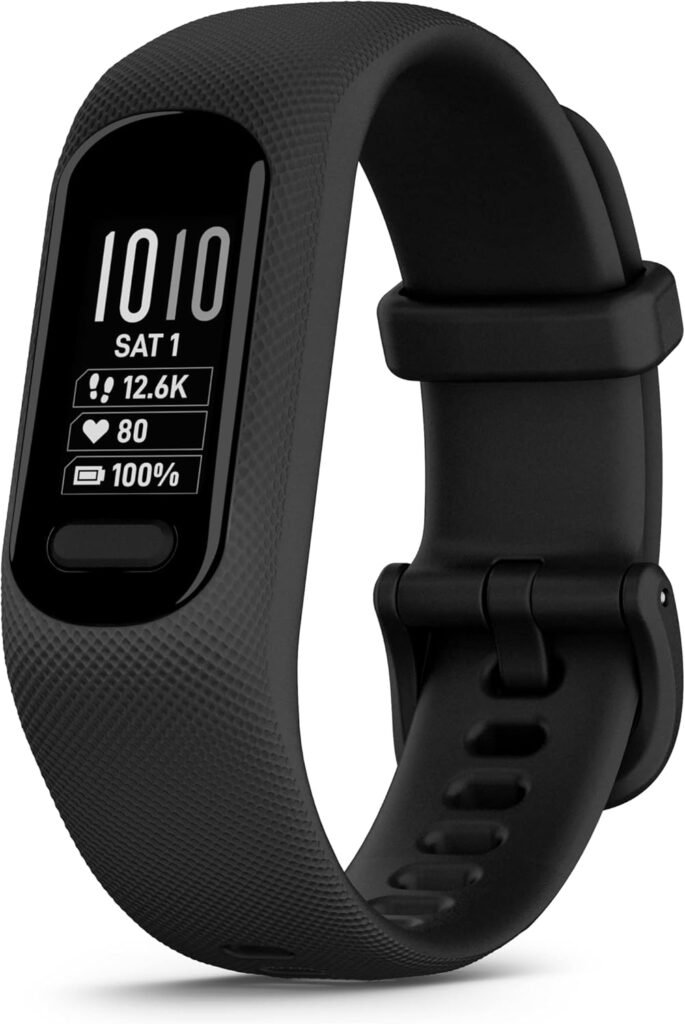
Price: $149.99 (approximately €138)
Key Features:
- 7-day battery life
- Advanced sleep monitoring with Sleep Score
- Body Battery energy monitoring
- Stress tracking with guided breathing exercises
- Connected GPS (uses phone’s GPS)
- Pulse Ox sensor for blood oxygen saturation
- Fitness age estimation
Why We Love It: The Vivosmart 5 excels in providing metrics that matter to those serious about fitness progression. The Body Battery feature, which combines heart rate variability, stress, sleep quality, and activity data to show your energy levels, is particularly useful for optimizing training and recovery cycles.
Best For: Dedicated athletes and fitness enthusiasts who prioritize accurate tracking and training insights over smartwatch features.
4. Whoop 5.0 – Best for Recovery Optimization
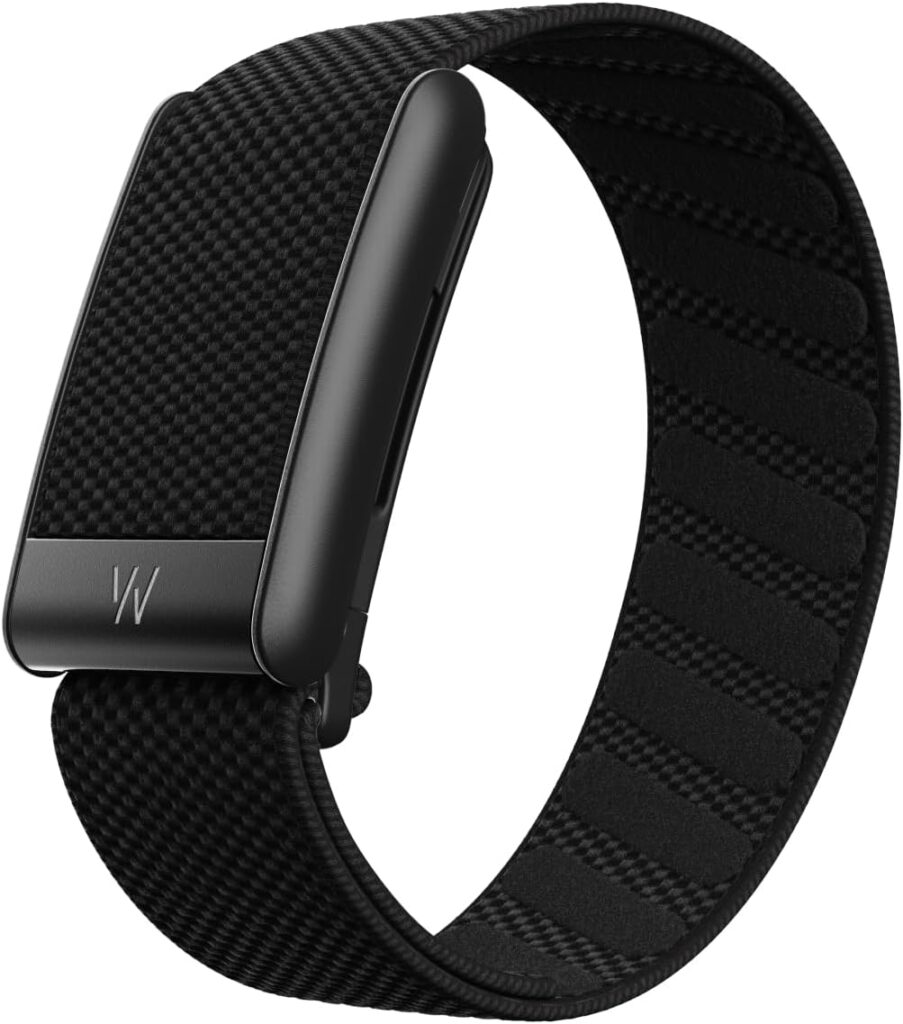
Price: Subscription-based at $30/month (approximately €28/month) or less with longer commitments
Key Features:
- No screen (data viewed in app)
- 5-day battery life with detachable battery pack for charging while wearing
- Highly accurate heart rate monitoring
- Recovery scoring based on HRV, resting heart rate, and sleep
- Strain coaching to optimize daily exertion
- Detailed sleep coaching
- Menstrual cycle tracking
Why We Love It: Whoop’s approach to fitness is refreshingly different—instead of focusing on steps or calories, it helps you understand when to push hard and when to prioritize recovery. The detailed sleep analysis and recovery metrics are unmatched, making this an excellent choice for those who take their training seriously.
Best For: Athletes and fitness enthusiasts who want to optimize their recovery and prevent overtraining.
5. Oura Ring Gen 3 – Best Non-Wrist Tracker
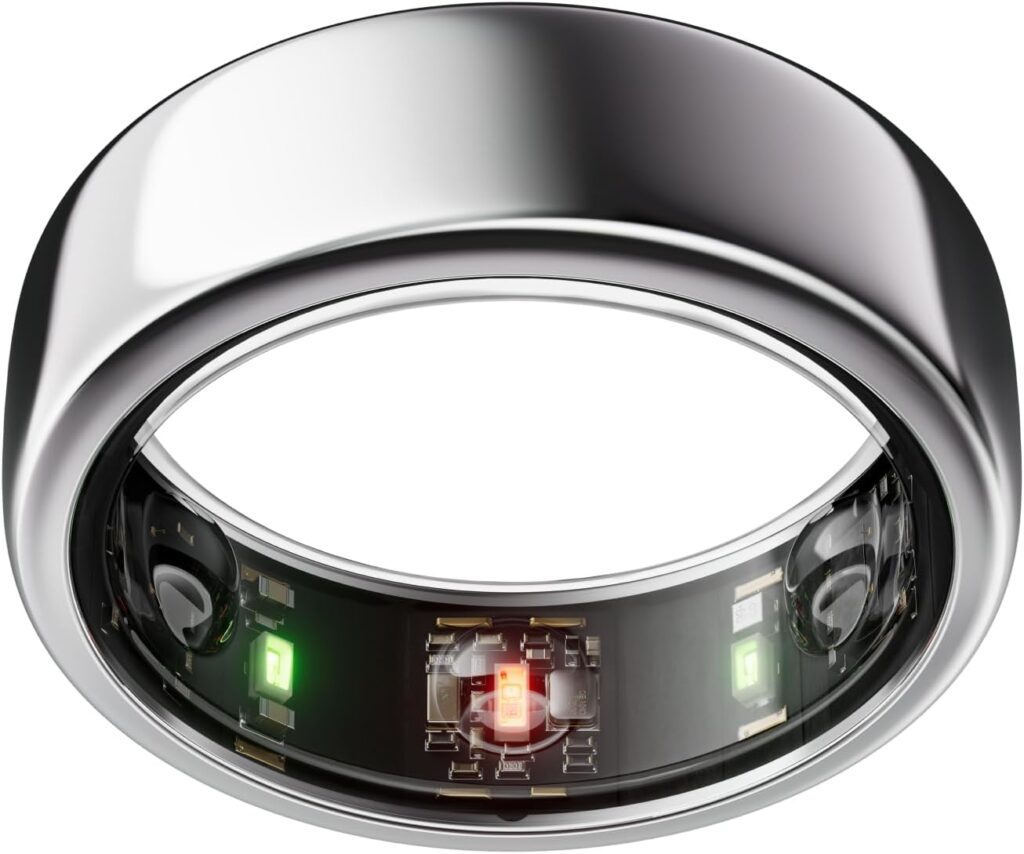
Price: $299 (approximately €276) + subscription $5.99/month (approximately €5.50/month)
Key Features:
- 7-day battery life
- Advanced sleep tracking with sleep stage detection
- Readiness score for recovery assessment
- Activity tracking with automatic detection
- Temperature monitoring for illness detection
- Period prediction
- Lightweight, waterproof design
Why We Love It: The Oura Ring’s discreet design makes it perfect for 24/7 wear, even in professional or formal settings where a fitness tracker might look out of place. Despite its small size, it packs impressive technology, with particularly strong sleep tracking capabilities that rival or exceed wrist-worn alternatives.
Best For: Style-conscious users who want comprehensive health tracking without wearing a device on their wrist, and those who prioritize sleep insights.
How to Choose the Right Fitness Tracker for You
With so many excellent options available, selecting the right fitness tracker comes down to your specific needs and preferences:
Consider Your Primary Health Goals
- Weight management: Look for devices with good calorie tracking and food logging integration
- Improving sleep: Prioritize detailed sleep stage analysis and sleep quality scores
- Athletic performance: Choose trackers with sport-specific metrics and recovery insights
- General wellness: A balanced device with good all-around features may be ideal
Think About Your Lifestyle
- Water activities: Ensure sufficient water resistance for swimming or water sports
- Outdoor enthusiasts: Built-in GPS becomes more important
- Busy professionals: Consider battery life and notification capabilities
- Fashion-conscious: Look at customization options and overall design
Budget Considerations
While premium options offer more features, many budget-friendly trackers provide excellent core functionality. Consider:
- Upfront vs. subscription costs: Some devices (like Whoop) have lower upfront costs but ongoing subscriptions
- Ecosystem investment: If you’re already invested in Apple, Garmin, or Fitbit ecosystems, staying within that family may provide better integration
- Longevity: More expensive trackers often have better build quality and longer support cycles
The Bottom Line
The best fitness tracker is ultimately the one you’ll wear consistently. Even the most advanced device won’t improve your health if it sits unused in a drawer because it’s uncomfortable or too complicated.
Our top overall recommendation, the Fitbit Charge 6, offers the best balance of features, usability, and price for most users. However, each of our picks excels in specific areas, so consider your unique needs when making your selection.
Remember that fitness trackers are tools to help you understand your body better—they complement, rather than replace, mindful attention to how you feel and perform. Use the insights they provide to make informed decisions about your health and wellness journey.
Have you tried any of these fitness trackers? Do you have questions about which one might be right for you? Let us know in the comments below!
Disclaimer:
This article contains affiliate links. If you make a purchase through these links, LifeSpark Lab may earn a commission at no additional cost to you. We only recommend products we genuinely believe will benefit our readers.
Prices shown in USD with approximate EUR equivalents based on current exchange rates. Actual European prices may vary. As an Amazon Associate, I earn from qualifying purchases.

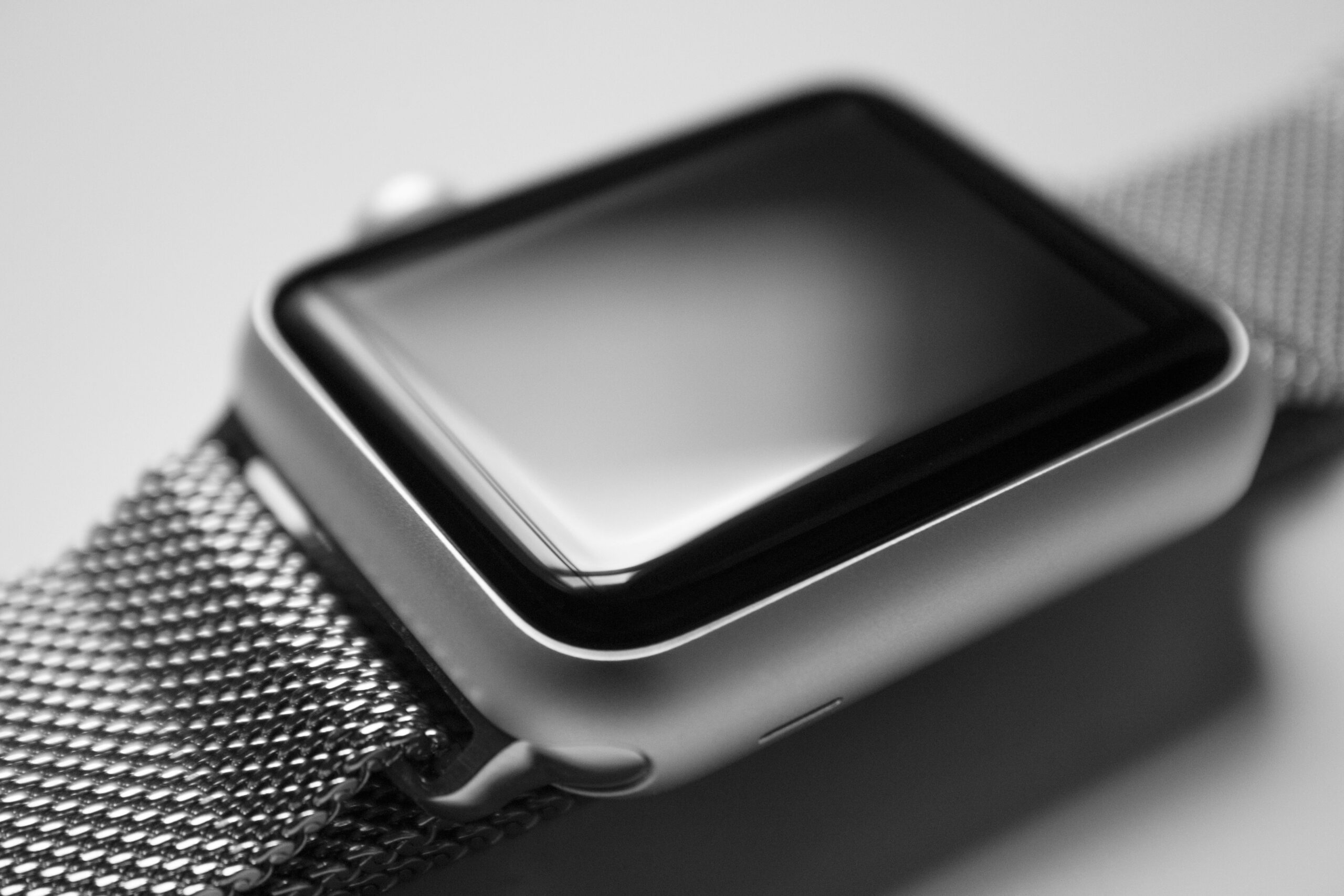
Leave a Reply